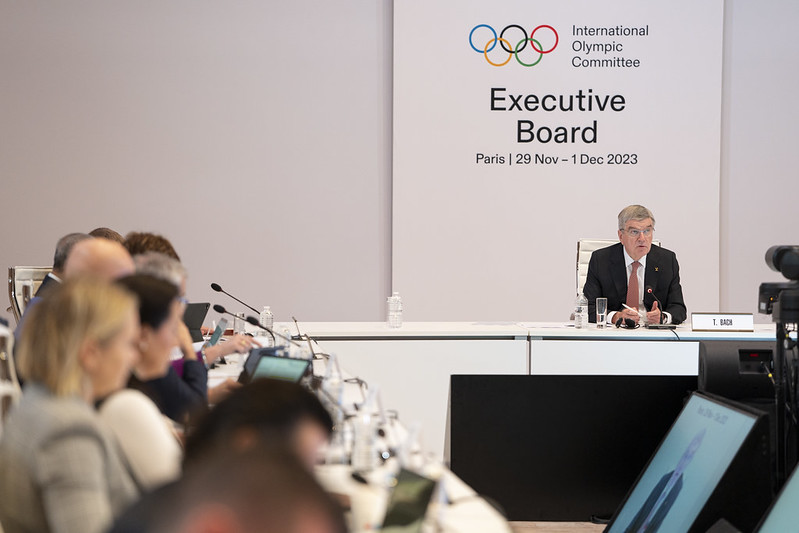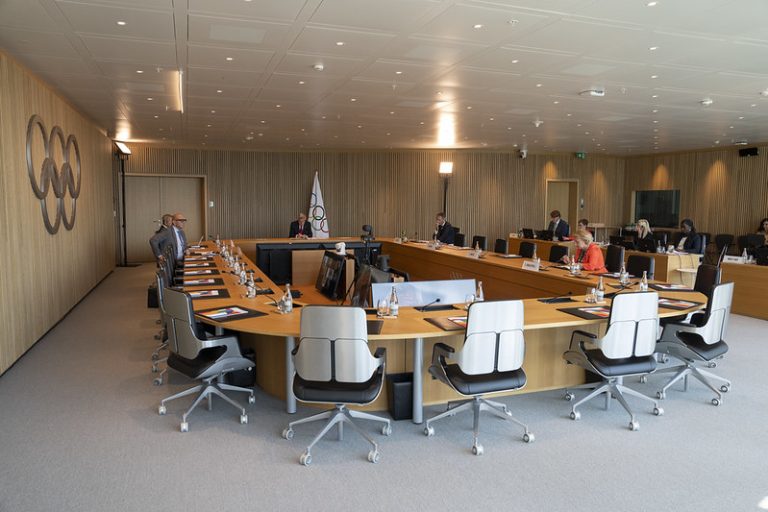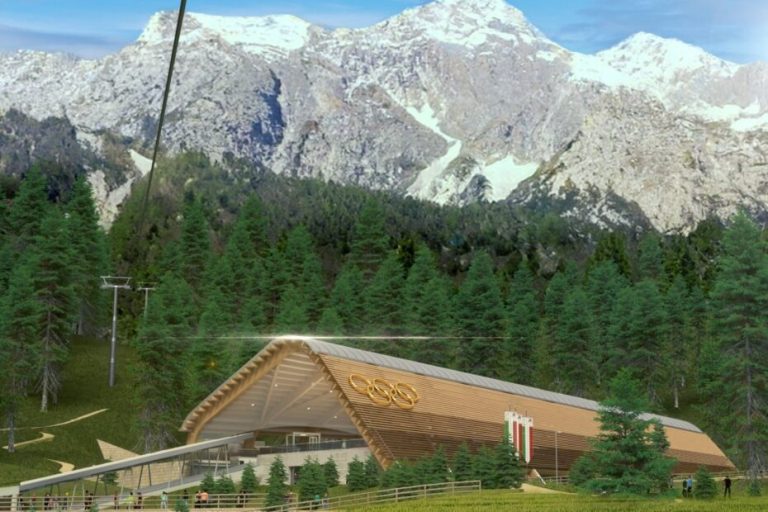On Wednesday the International Olympic Committee’s (IOC) announced France has been named preferred candidate for the 2030 Winter Olympics and Salt Lake City for the 2034 edition. Additionally, Switzerland will be given special consideration with a 2038 bid.
The announcement came following day one of the IOC quarterly Executive Board (EB) meeting now underway in Paris until Friday.

The decision recommended by the IOC’s Future Host Commission (FHC) chaired by Karl Stoss and endorsed by the EB means the 2030 Winter Games are highly likely to be held in the French Alps and Salt Lake City will probably stage its second Winter Games in 2034.
According to the IOC “In Targeted Dialogue, an ‘Interested Party’ becomes ‘Preferred Host’ for an edition.”
“No other city or region can apply until the IOC Executive Board has decided if there should be an election. This phase involves planning, with commitments to sustainability and legacy.
“At the end of a Targeted Dialogue, the Executive Board can put forward one or more Preferred Hosts for election by the IOC Session.”
But unless things go awry for the preferred hosts, they both can expect to be rubberstamped by the full IOC membership at a Session next July in Paris ahead of the Summer Games.
“What really stood out about the French Alps and Salt Lake City-Utah projects was their vision for the athlete experience, their alignment with regional and national socio-economic development plans, and their very strong support from the public and from all levels of government,” Stoss said.
“The Commission felt strongly that the other Interested Parties would benefit from more time to optimize the athlete experience of their future Games, and to continue to build on their burgeoning foundations of public and political support.”
Stoss said Swiss plans were strong due to “the principles of sustainability, cost reduction, environmental protection and legacy”, but would need to further develop the venue footprint to bring the clusters closer together. He said these improvements, as well as evidence of public support perhaps through a referendum, could prioritize Switzerland for 2038 if work is done by end of 2027. He calls this “privileged dialogue” which will exclude other possible bids for 2038 while Switzerland remains in the running.
Wednesday’s decisions could lock out other interested hosts until at least 2042 meaning defeated Sweden, and recent interest from Sapporo, Vancouver and Barcelona will have to wait a long time for their next chance.
“We will start more detailed discussions with the interested parties,” Stoss told reporters following the announcement.
“They have now to do their homework. The decision is not made yet. The work is not finished. But we have another six months to come to a decision,” he added.
The French Olympic Committee (CNOSF) launched its joint bid in July between Auvergne-Rhône-Alpes and Provence-Alpes-Côte d’Azur in the French Alps and immediately entered the IOC’s continuous dialogue phase. In September a high level delegation visited IOC headquarters in Lausanne, Switzerland to try to close the gap on the previously launched bids – at the time seen as a powerful move.
This month the bid unveiled further details for a sustainable two region, four cluster concept in a draft venue plan officially named the “French Alps” Winter Games bid. The Games would be centered around Nice where figure skating, ice hockey, short-track speed skating and curling would take place (in a possible new arena) and the international broadcast and media facilities would be located. An Athletes Village would be in Nice and the area would likely stage the closing ceremony.
No budget has been released.
A recent bid commissioned poll revealed 73 percent (44 percent somewhat favorable, 29 percent very favorable) were behind the bid, and that number rose to 88 percent among the 18 to 34 age demographic.
But opposition group ‘NO JO’ has formed in the Southern Alps and the group claims the polls are distorted and not an accurate representation of the residents. NO JO claim the Games would not be friendly to the environment or climate.
France has hosted three previous Olympic Winter Games including Chamonix in 1924, Grenoble in 1968 and Albertville in 1992. The nation is currently organizing the Summer Games to be held in Paris next year.
This was Sweden’s second straight bid after being defeated by Milan-Cortina in Italy to host in 2026. The plan included multiple compact clusters with most in the Stockholm area using existing or temporary venues. A sliding track in Sigulda, Latvia had been proposed for bobsleigh, skeleton and luge since no facilities exist in Sweden.
Sweden is the most successful Winter Olympics nation never to host the Winter Games despite eight previous bids and now nine failed projects. Stockholm hosted the Summer Games in 1912.
Switzerland’s Sport Parliament resoundingly approved the national project last week that claims to be decentralized and sustainable with the use of existing venues. The Games estimated to cost 1.48 billion Swiss francs (USD $1.65 billion) has the support of about two-thirds of residents according to a recent poll.
Salt Lake City has been developing its project for almost 10 years and was nominated by the United States Olympic and Paralympic Committee (USOPC) in 2018 with plans to reuse many of the well maintained facilities from the 2002 Games in the Utah capital area. The Salt Lake City-Utah Committee for the Games (SLC-UT) has been waiting patiently to host a future Games, even offering to host in 2030 if necessary instead of the preferred 2034 Games that would build a larger gap following Los Angeles 2028 and increased potential revenue.
The estimated (USD) $2.2 billion cost of the Games is said to be privately funded.
SLC-UT had already planned a ceremonial re-lighting of the 2002 Winter Olympics cauldron this Friday with a celebration to presumably mark this milestone. A watch party of the announcement was reportedly held by supporters at Salt Lake City County Building.
Though the Olympic Charter prevents host elections within the borders of one of the candidates to avoid any conflicts-of-interest, Stoss confirmed the election will move forward in Paris with the French candidate as planned.
IOC Corporate Communications Director Christian Klaue said on X (formerly Twitter) “As with the new approach to electing hosts and only one Preferred Host in the Targeted Dialogue, there is no risk of any unfair advantage or campaigning around a host election.”
In the election, IOC members will have to vote ‘yes’ or ‘no’ on the proposal to award France the Games if the bid moves past targeted dialogue and on to the ballot.
The FHC will now negotiate with bidders on the host contract. Officials previously laid out a schedule for plans to be finalized in February and guarantees confirmed by the end of March but now say timelines for targeted dialogue will be set soon. If all requirements are met a recommendation could be made to the EB to forward the projects for election in July.


